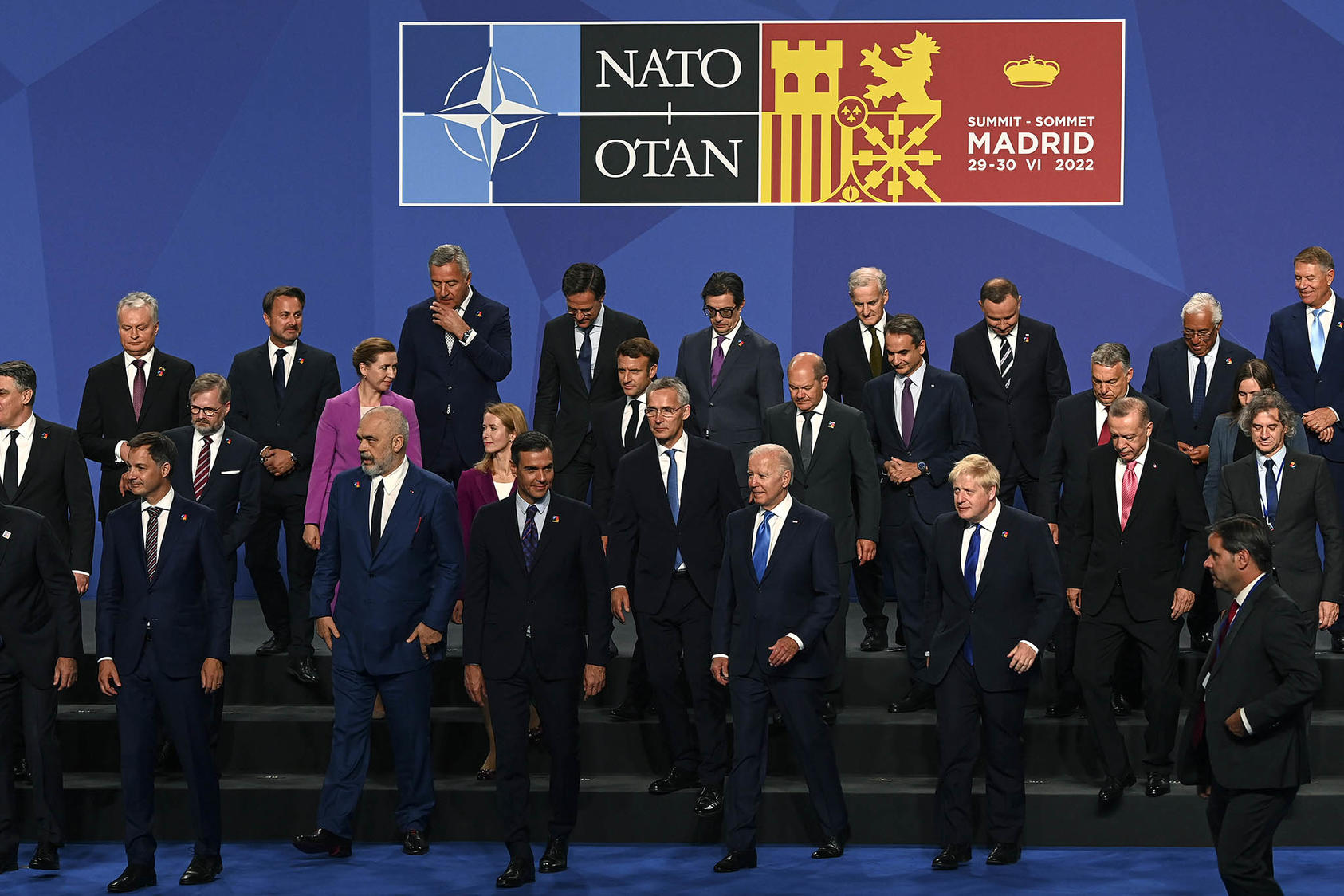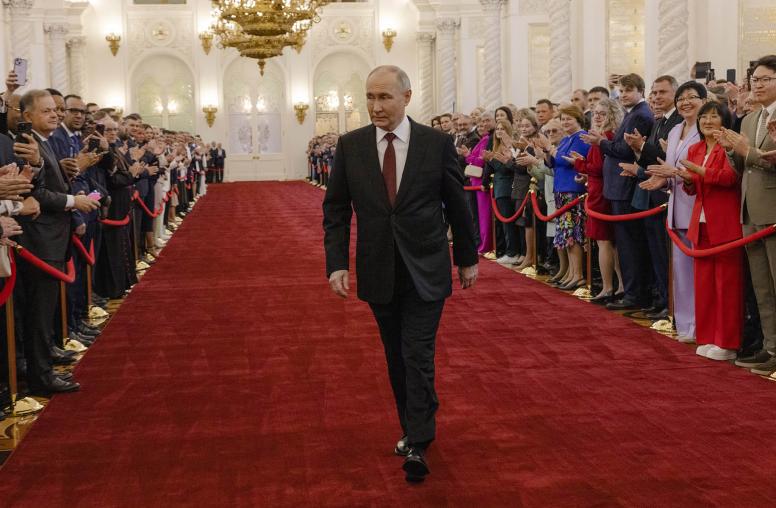The West Must Sustain Support for Ukraine Shown at Madrid
Reinforcing international rule of law means avoiding rewarding aggression.
As the world’s democracies confront an authoritarian ruler’s military aggression, they have an institution with which to respond — a NATO that just demonstrated its readiness at Madrid — that Churchill might have wished for in June 1940. In the film The Darkest Hour, the British army is facing annihilation by surrounding Nazi armies at the French port of Dunkirk. Winston Churchill (played by Gary Oldman), newly prime minister, faces strong pressure from Neville Chamberlain and Lord Halifax to negotiate with Adolf Hitler — with mediation by Benito Mussolini — for concessions that would save the army. Churchill consults with the British people — on the subway — who strongly oppose negotiations. Reinvigorated, the prime minister addresses parliament, vows to fight on the beaches until victory, and expresses confidence that the United States, the arsenal of democracy, will come to Britain’s aid.

Not for the first time, Ukrainian President Volodymyr Zelenskyy sounds like Churchill. The Ukrainian army is fighting fiercely against overwhelming odds. After Ukraine drove back Russia’s initial assault on northern Ukraine and Kyiv, the Russian war machine is now grinding down Ukrainian defenses in Donbas with massive bombardments from artillery, air strikes, cruise and ballistic missiles. Some European leaders and even some Americans are urging Zelenskyy to negotiate with Vladimir Putin, to make territorial concessions in return for a cease-fire and an end to the Russian invasion of Ukraine.
An important part of Zelenskyy’s strength is the mutual bond between him and the Ukrainian people. A Wall Street Journal poll this week reflected the overwhelming opposition of Ukrainians — 89 percent — to negotiations that would trade Ukrainian land for a cease-fire. Zelenskyy has been appealing to the United States and the rest of NATO for weapons to enable him to stop the Russians’ advance and push them back at least to where they were on February 24, when they invaded for the second time. As in World War II, the United States is responding, drawing on its arsenal to support the embattled Europeans.
The Ukrainian people and President Zelenskyy are right not to negotiate now. A ceasefire would ensure that Russia controls some 20 percent of Ukrainian land, with no hope that Moscow will ever give it up. It would reward aggression. Further, Russia’s original war aim has not changed — complete domination of Ukraine, even to the point of its extinction. A ceasefire now would give the Russians time to rebuild their battered army in preparation for a further attack after several months.
The Ukrainians are counting on American and other NATO weapons to enable them to turn the tide, go on the offensive, and push the Russians back. The desperate and heroic defenses of Mariupol, Severodonetsk and Lysychansk have bled the Russian army and given Western allies time to get the heavier, longer-range weapons to the front lines.
When the disposition of forces is returned to that of February 24, President Zelenskyy says he could be in a position to negotiate. At that point the United States and Western allies can provide him with the backing he will need. The main element of that support will be a guarantee that the West, starting with the United States, will continue to support a democratic, independent, sovereign, and prosperous Ukraine with the means to defend itself and deter further Russian aggression.
The West will need to provide Ukraine the financing to get through the war and the reconstruction after the war ends. The $300 billion in Russian central bank reserves that are frozen in banks of the Group of Seven (G7) countries will be the basis for a Marshall Plan for Ukraine. Other funding will need to follow.
To give Ukraine the means to defend itself and deter further Russian aggression the United States, perhaps supported by others, should commit to arm Ukraine with the weapons and other military capabilities it will need for the foreseeable future. As with the U.S. commitment to Israel, the United States should agree with Ukraine in a bilateral memorandum of understanding on the types and quantities of weapons and the schedule for delivery. These weapons should be state-of-the-art, NATO compatible systems that will overmatch Russian capabilities and protect Ukrainian sovereignty.
Ukraine is fighting for its survival as a state and a nation. It is the barrier to Putin’s clearly expressed aim: the reestablishment of Russian empire. Europe cannot be secure unless Ukraine wins this war and has international support to maintain its sovereignty in the future. An expanded and strengthened NATO needs Ukraine as part of its defense of Europe. The European Union’s invitation for Ukraine to join will ensure Ukraine’s place in Europe and motivate Ukrainians to adopt the reforms that are still needed for their economic and democratic success. To reestablish order in international relations, Ukraine must be sovereign, and Russia must withdraw from Ukrainian lands it has invaded. This will take time, but it can happen.



